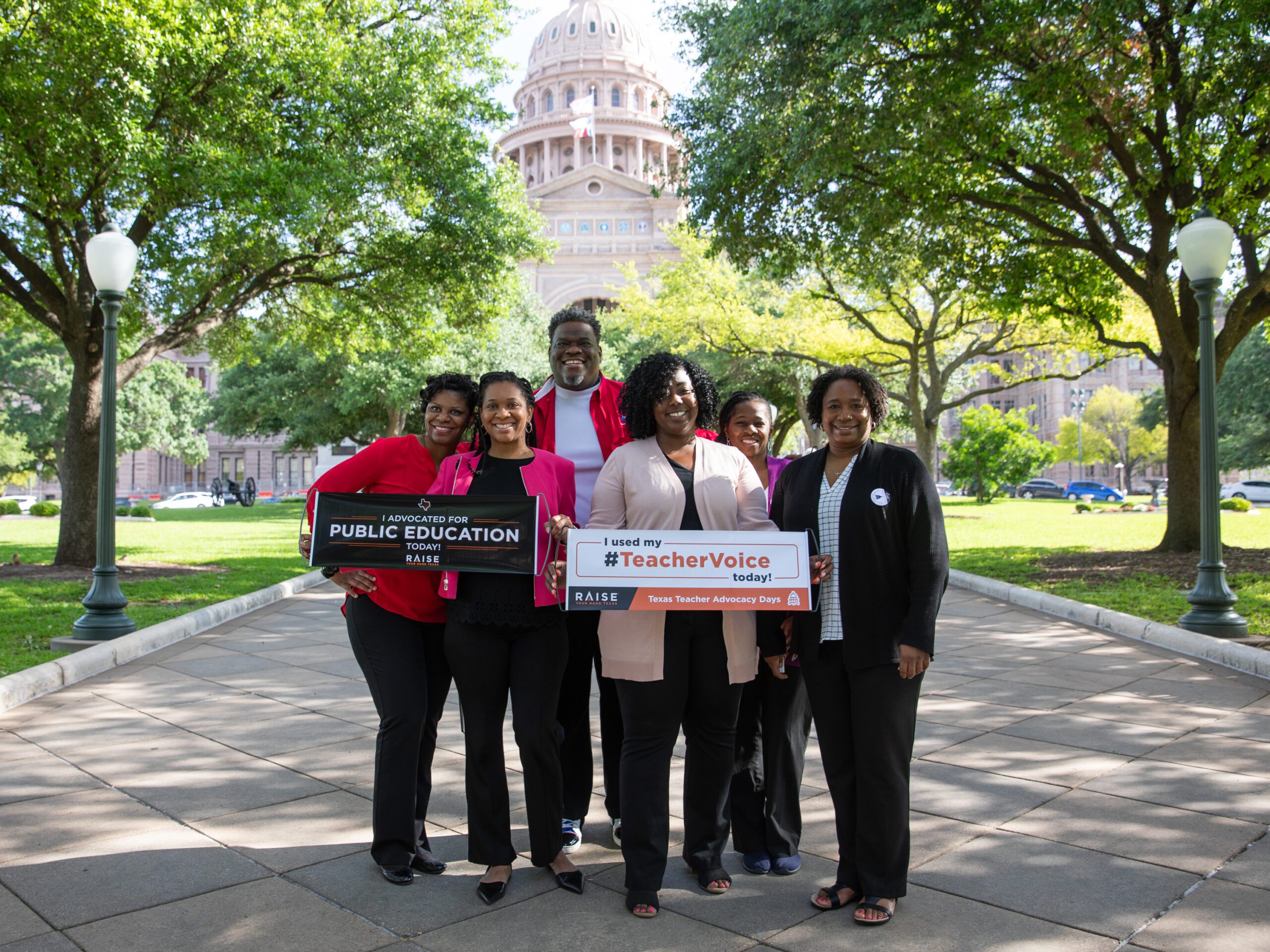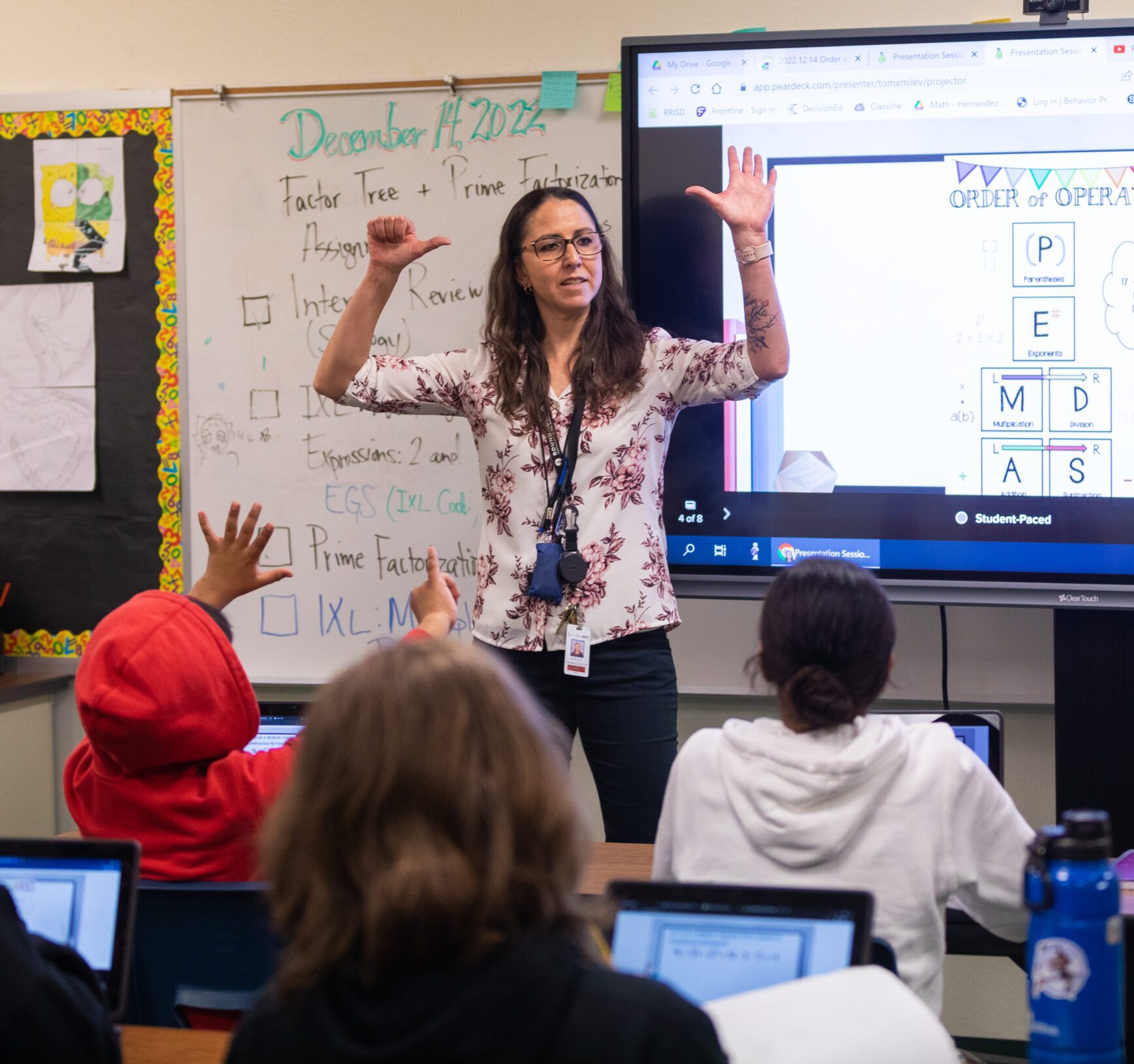
categories
Rethinking School Assessment and Accountability

June 24, 2022
On January 18, 2022, Raise Your Hand Texas hosted our first-ever policy conference, the Measure What Matters: Assessment and Accountability Conference. The event was part of a statewide listening and engagement campaign created to address school accountability reform. The day-long event brought together education practitioners, policy experts, and state legislators to talk about paving a path towards a world-class education system through effective accountability and assessment practices in Texas.
In 2017, Texas adopted an A-F accountability system, which assigns letter grades to campuses and school districts based on student performance. While this system has been in place for five years, education leaders and policymakers are questioning whether this system accurately measures school quality. A primary concern for many is the emphasis it places on standardized testing.
Speakers at the January event gave a historical overview of assessment and accountability in Texas; described the next generation of the STAAR test; shared insights into what is happening in Texas classrooms; and offered different accountability frameworks that center on parents and students.
The Impact of COVID-19 on Education
In school districts and communities across the state, the COVID-19 pandemic has served as a stark reminder that crises can quickly and deeply disrupt student learning. Since March 2020, students have had to adjust to unstable learning environments, and many educators are worried the current accountability system is only adding additional stress to students. When thinking about administering the STAAR test, Measure What Matters speaker and bravEd founder John Tanner said, “We didn’t test one year, and the world did not fall apart. In fact, there was less stress on kids, (and) there was a lot that was accomplished.”
Tanner believes now is the right time for Texas to break away from its over-dependence on standardized testing and focus on more holistic measures of student growth.
Texas Educators Share Their Perspectives
Teachers are the most important in-school component when it comes to influencing student achievement. However, the pandemic has added to the challenges teachers are facing under the accountability system. As we continue to endure these challenges, it is imperative Texas leaders support our teachers. Now, more than ever, teachers’ voices must be heard regarding the future of student testing and accountability.
After the conference, Raise Your Hand Texas sat down with a few panelists and educators to discuss outcomes-based funding, empowering student learning, and what the STAAR test is taking away from our students inside and outside of the classroom.
One of the highly debated policies of a new accountability system is the potential creation of incentive programs that reward school districts with funding based on their students’ STAAR test results. These outcomes-based funding models are difficult to scale and often punish the very school districts that need support. Blended Learning Program Manager Norma Osuna (Ysleta ISD) believes outcomes-based funding can create tension among teachers and inhibit collaboration. It can also create a culture of competition rather than one of collaboration.
She describes the following activities as undermining our teachers’ and students’ collective ability to succeed:
- when test scores are prioritized over helping students thrive,
- stress is placed on students to achieve high scores, or
- teachers target their lesson plans towards STAAR standards rather than specialized, school district-adjacent standards.
Claudia Ureño-Olivas, principal at Ascarate Elementary (Ysleta ISD), shared that standardized testing does not prepare students for the future or the workforce, and distorts the true picture of measuring success.
“I’m not sure that this test means success for them,” said Ureño-Olivas. “I believe it is more of a measurement of stamina – of ‘Are you able to sit there and read for four hours or finish those four passages or answer all those math questions?’ It’s really not something that prepares them for a great future, for what the workforce is expecting (of them). It really doesn’t give our students a true picture of what they will need to succeed.”
Measuring Educational Success
So, what do actual measures of success look like? Sometimes, it looks like taking matters into your own hands. At Ysleta ISD, teachers were encouraged by administrators to create their own assessments based on personal experiences with students. They utilized open-ended questions and encouraged students to be creative.
The results? Students were eager, empowered, and excited.
“They took ownership and agency over their learning because success was measured based on the school’s and students’ needs, rather than compliance with a test,” Osuna said. “Improvement should be celebrated, regardless of the starting point.”
During the conference, assessment and accountability expert Dee Carney said, “The A-F rating does not tell parents about school safety, access to arts and music programs, extracurriculars, and more.” She also advocated for a more comprehensive representation of student engagement.
“We have to have an accountability system in place so we can see how we’re doing, making sure that kids are growing,” said panelist Dala Henry, a special education instructional coach at Bryan ISD. She believes in order to accurately measure growth, the accountability system should factor in regional and socioeconomic differences; students’ starting points and differences; measured improvements over the course of the school year; and parents’ opinions. It should focus on what matters most: creating a world-class education system where students’ growth and learning are nurtured.
Paving the Way Forward
Looking forward, what should we do? One place to start is by focusing on educational growth for each student and recognizing that each starting point will be different. Students aren’t standardized, so why should standardized tests play such a large role in assessing our schools?
Public schools offer so many great experiences for students, ranging from extracurricular activities to quality instruction. The state measures our schools through one test on one day, not taking the diverse learning opportunities into account for elementary and middle schools. School accountability reform has the potential to prioritize student growth, champion teacher collaboration, and decrease educational stress. Inclusivity is an important part of designing a quality accountability system. It is time for Texas to include more of our students’ classroom and campus experiences in our accountability systems.
Our Measure What Matters Assessment and Accountability journey continued with listening circles across Texas through May 2022. Convened in December 2021, the Raise Your Hand Texas Measure What Matters Council has worked to provide feedback, perspective, and guidance on the assessment and accountability research, and met in June to discuss the findings of our statewide surveys and listening circles.
You can make a difference in Texas Public education. Connect with your Regional Advocacy Director to learn how to add your voice to our efforts. You can also stay informed by signing up for text alerts by texting RAISEMYHAND to 40649. You will receive 1-2 texts per month and more frequently during the legislative session.



